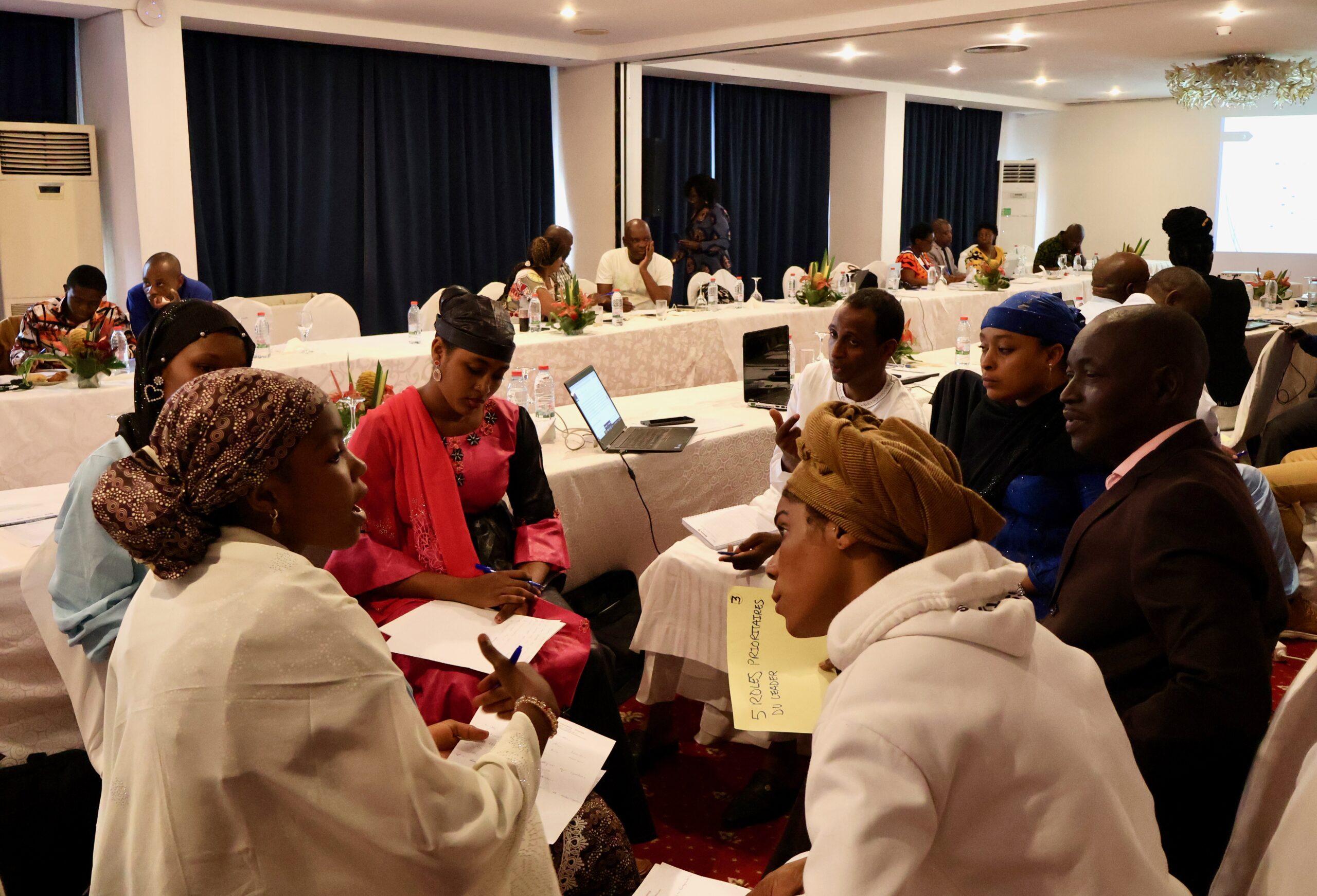Indigenous leadership for lands, forests, and territories
Central African Indigenous leaders gather for training on advocacy, leadership, communication, and project management in Douala, Cameroon.
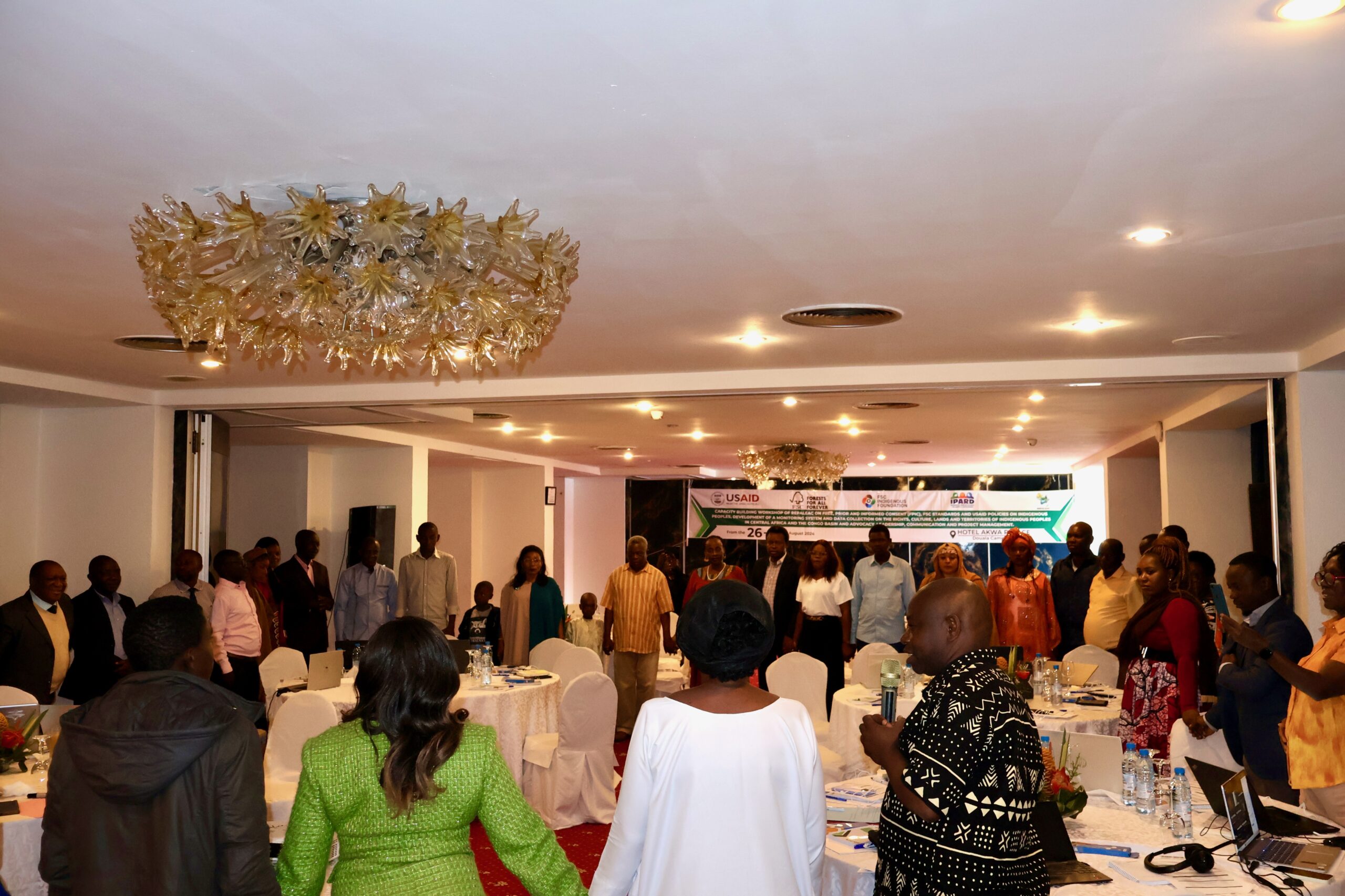
Central Africa’s forest ecosystems are home to exceptional biodiversity, offering vast potential for the socio-economic development of the region. Recognizing the ecological and economic importance of these forests—and the growing threats they face—the Heads of State of Central Africa pledged in March 1999 through the “Yaoundé Declaration” to work collaboratively towards the conservation and sustainable management of their countries’ forest ecosystems. This commitment supports the economic and social development efforts of their populations.
In line with this vision, the Network of Indigenous and Local Populations for the Sustainable Management of Forest Ecosystems in Central Africa (REPALEAC) was established in 2003. As a key partner under the FSC Indigenous Foundation’s Indigenous Peoples Alliance for Rights and Development (IPARD) Program, REPALEAC serves as a sub-regional platform for promoting and protecting the rights of Indigenous Peoples and Local Communities (IPLCs) across Central Africa. The network unites over 200 grassroots Indigenous community organizations, spread across eight national networks in Burundi, Cameroon, Congo, Gabon, Central African Republic, Democratic Republic of Congo, Rwanda, and Chad.
From 26-30 August 2024, REPALEAC, in collaboration with the FSC Indigenous Foundation, hosted an intensive training workshop in Douala, Cameroon, with 50 representatives from its member organizations to strengthen the organizational and operational capacities of the network.
Throughout the week, participants engaged in sessions designed to:
- Enhance their knowledge of leadership, advocacy techniques, organizational communication, and project management principles.
- Equip them with the technical skills necessary for collecting data on land tenure within Indigenous territories. This includes training on cartography, participatory mapping—particularly three-dimensional mapping—and the creation of databases to document the areas occupied by Indigenous Peoples in Central Africa.
- Provide a deeper understanding of FSC standards related to Indigenous Peoples and the relationship between FSC and the FSC-IF, as well as USAID guidelines and policies concerning Indigenous Peoples. The workshop also explored the integration of Indigenous rights and priorities in USAID’s bilateral cooperation programs with states.
The workshop’s opening ceremony was graced by the Vice President of REPALEAC, highlighting the significance of the event for the region’s Indigenous communities.
“The forests of Central Africa are not just natural resources; they are the lifeblood of our communities, sustaining our way of life and our cultural heritage,” stated a representative from REPALEAC during the opening remarks.
“This workshop is a crucial step towards ensuring that Indigenous Peoples and Local Communities are at the forefront of decisions affecting their lands and resources,” said another REPALEAC representative.
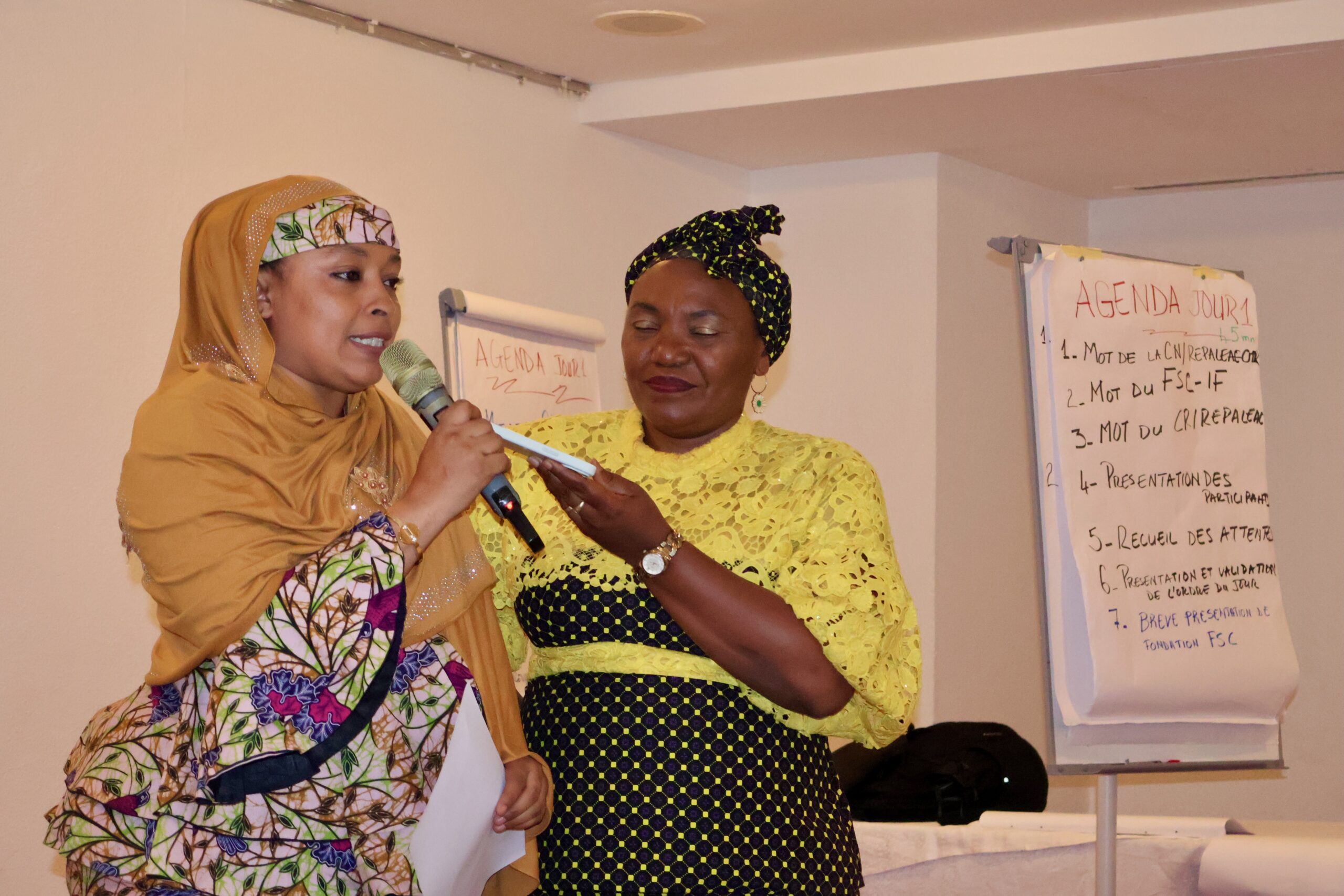
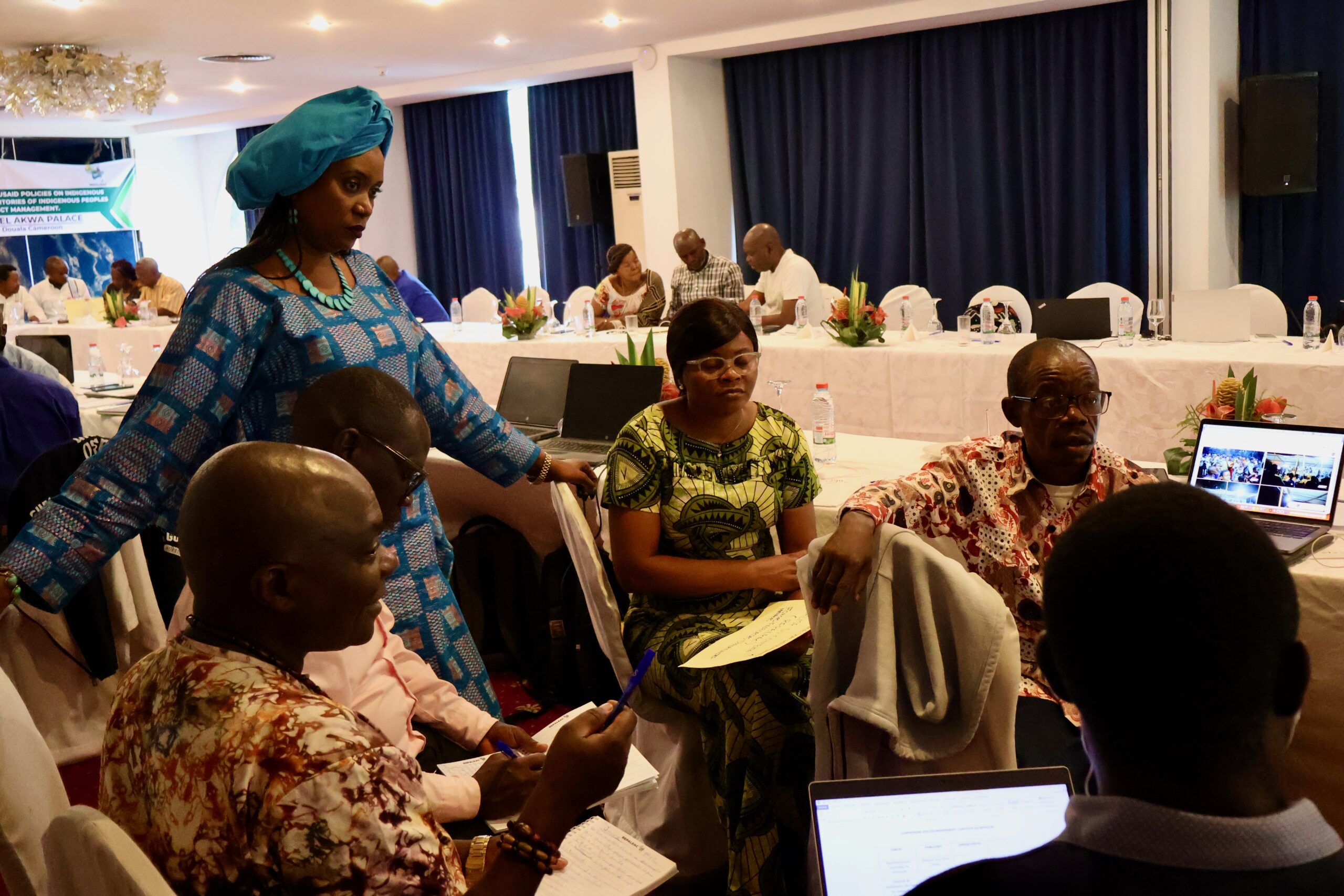
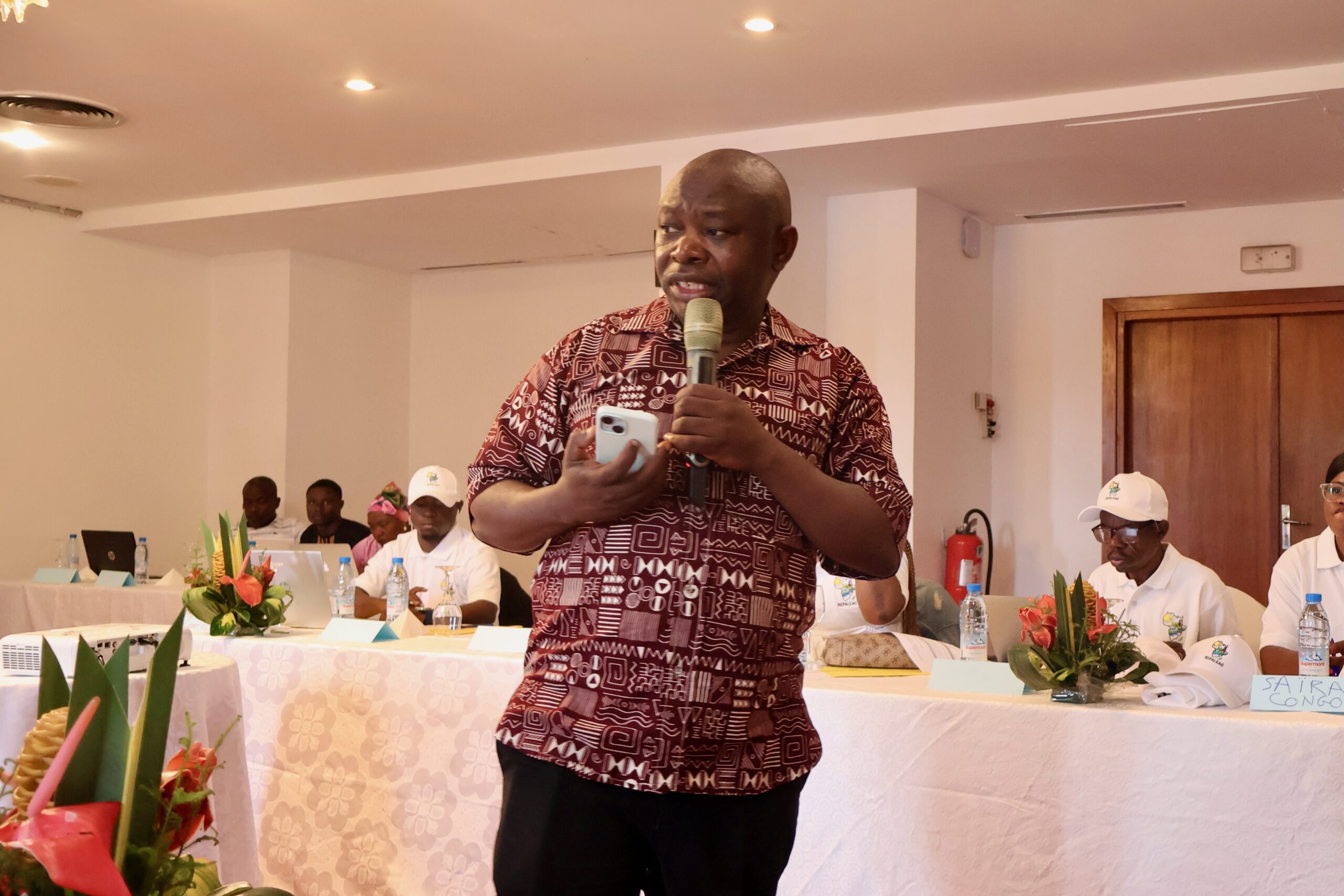
REPALEAC members were curious to understand how USAID works with organizations such as the FSC-IF.
“For Indigenous Peoples, Free, Prior, and Informed Consent (FPIC) is important because it is the right to self-determination; opportunities for socioeconomic development and benefit-sharing; safeguarding against adverse impacts on lands, territories, natural resources, cultural heritage and/or sacred sites; supporting and aligning with Indigenous development plans and fulfilling obligations under international, regional and national regulatory frameworks,” said Vy Lam, USAID Indigenous Peoples Advisor.
The workshop focused on implementing REPALEAC’s strategic plan, which has four key objectives:
- Securing Indigenous Peoples’ and Local Communities’ lands, vision territories, and natural resources.
- Ensuring IPLC participation in decisions concerning access to and sustainable management of land, forests, and natural resources at local, national, and international levels.
- Increasing and consolidating sustainable economic benefits for IPLCs from the management of natural resources and forests.
- Improving the living conditions of IPLCs sustainably.
“We are very grateful to the FSC-IF for the ongoing training in Douala. The module on ‘Leadership’ will surely bear fruit where the leadership of the network at the national level will demonstrate quality organizations.” said Basiru Isa, the REPALEAC’s Secretary General.
“Empowering our communities with knowledge and skills is essential for us to effectively protect our lands and assert our rights,” remarked one of the participants.
“This workshop is not just about learning; it’s about preparing to take action in our respective countries,” said another REPALEAC representative.
At the conclusion of the workshop, participants drafted action plans to implement the knowledge they acquired to make a tangible impact in their home countries.
In her closing remarks, Salina Sanou, FSC-IF Regional Director for Africa and Asia stated, “FSC-IF is pleased to be your partner of choice. We’re here to support you every step of the way. We’re also ready to learn from you because that’s what partnership is all about. Call on us any time. Our commitment to Indigenous Peoples knows no bounds.”
As we left this gathering, FSC-IF called for a working committee to co-create new initiatives with us for funding to scale up work with Indigenous Peoples in the African region.
This workshop is part of the Indigenous Peoples Alliance for Rights and Development (IPARD) Program, supported by USAID, the Forest Stewardship Council, and private sector partners.
